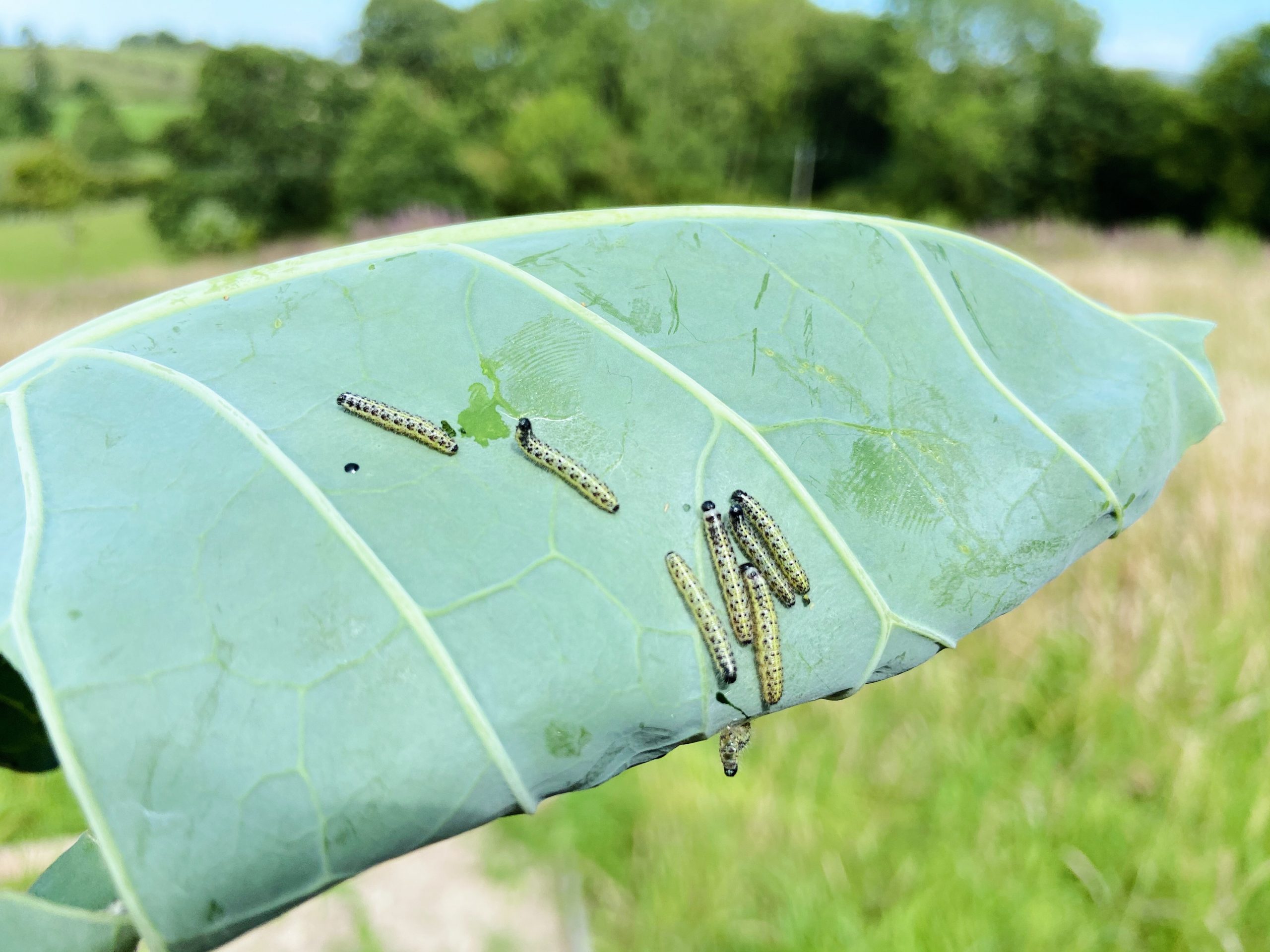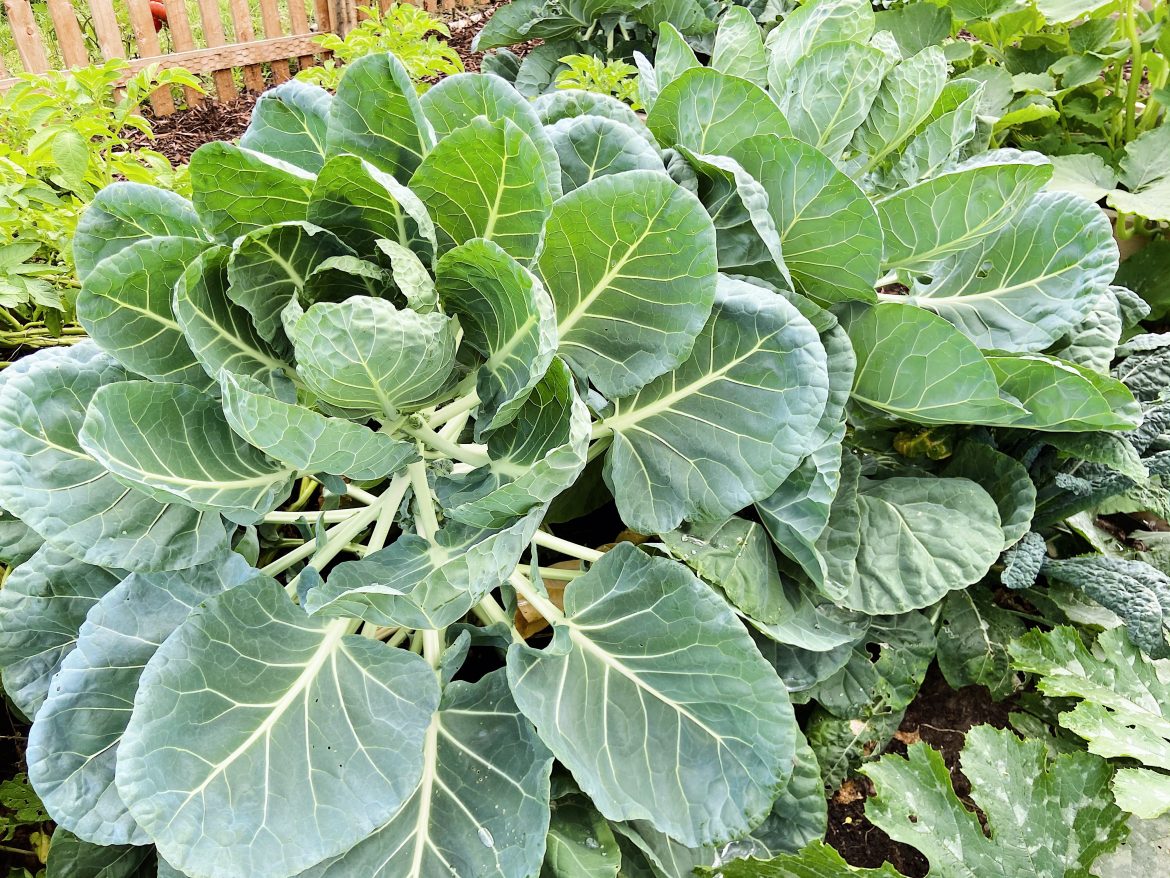The butterflies have been out for weeks, and during my morning vegetable garden rounds I saw a few odd holes in some of our brussel sprout and broccoli leaves. You know what that means? It’s Brassica watch time.
The holes have been caused by the first of the hatching caterpillars, and so far they’ve affected a couple of our broccoli and brussel sprout plants. Thankfully the kale has been untouched for now.
I had my induction and crash course in caterpillars around this time last year when they devastated our only kale plant, so at least I know what I have to do. It entails a few visits a day and picking the caterpillars off by hand.

Today, because some of the leaves were damaged and the caterpillars and eggs were on them, I cut the affected leaves off and put them on the compost heap.
Of all the pests that have put my new gardening skills to the test, caterpillars are probably the most manageable because you can see them on the leaves, they’re not very good at hiding, the holes are telltale signs of where they are, and removing them simply entails picking them off.
Working now, when the caterpillars are small and don’t do as much damage, is key to keeping them under control and limiting the damage. It just takes time and patience.
